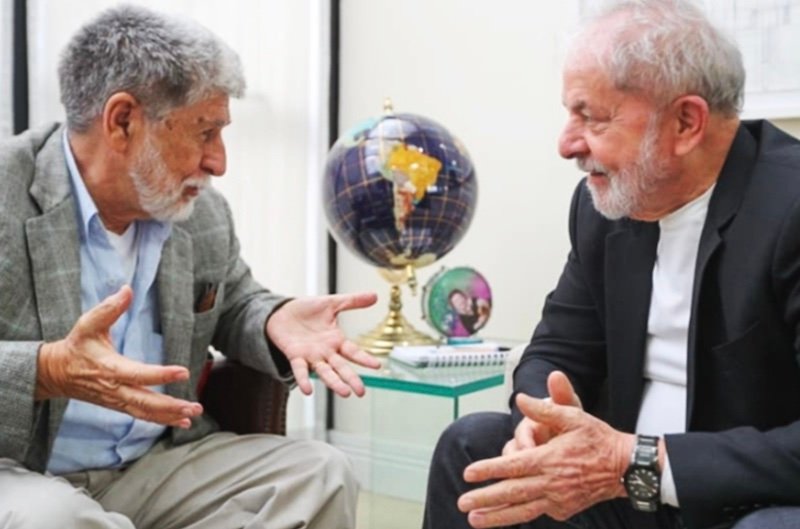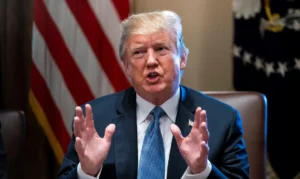
“Brazil will not leave the BRICS,” categorically stated the special advisor to President Lula, Ambassador Celso Amorim, in an exclusive interview with Cafezinho. The declaration directly responds to voices in the press and political circles suggesting that Brazil’s presence in the bloc – which currently comprises 21 countries in total, with 11 full members and 10 partner countries – would be responsible for the geopolitical problems the country faces with the United States.
According to the special advisor to the Presidency of the Republic, suggestions that Brazil should abandon the BRICS to avoid retaliation from the United States make no sense. For Amorim, the Brazilian position is clear and unwavering: the country will not yield to such blackmail.
The critique of Bolsonaro’s “sell-out”
Today, an editorial was published in Estadão that makes strong criticisms of the “sell-out” (entreguismo) and the complete lack of national commitment from the Bolsonaro family and their cronies. The editorial acknowledges that “much more can still be said about the irresponsibility of Jair Bolsonaro” and his allies who tried to subordinate national interests to external pressures.
The Estadão text also observes that Trump has tried to bail out Bolsonaro “at the cost of inestimable damage to the Brazilian economy, threatened by an American tariff hike.”
The editorial, however, makes a serious mistake by attributing Brazil’s affiliation with the BRICS as the reason for the geopolitical problems the country faces with the United States. The newspaper concludes that it would be better for Brazil to withdraw from the bloc.
For Amorim, the problem with this editorial lies in the attempt to legitimize an infamous blackmail – interference in the Brazilian judiciary in exchange for the submission of national sovereignty. The ambassador considers this stance inadmissible.
Unprecedented US arrogance
In decades of diplomatic experience, Amorim states he has never witnessed such arrogance as that demonstrated by American President Donald Trump, who even ordered Brazil to “IMMEDIATELY” halt, in capital letters, the judicial process against Bolsonaro.
Not even when Brazil decided to build the nuclear power plant with Germany – a decision that generated intense opposition from the United States at the time – was there such aggression towards the country or such arrogance on the part of the American administration, Amorim recalled.
To illustrate the growing isolation of the US, Amorim resorts to a humorous analogy: “this reminds me of the drunk who enters the wrong side of a busy street, and indignantly shouts: ‘What madness is this! Why is everyone driving against traffic?'”
Mark Rutte’s ridiculous and pathetic threats
The statements by NATO Secretary-General Mark Rutte, threatening Brazil, India, and China with devastating tariffs of 100% or more if they did not break relations with Russia, provoked strong responses from the three countries. India and China reacted particularly severely to the threats.
In Brazil, the Minister of Foreign Affairs, Mauro Vieira – known for his measured style – surprised by giving exceptionally harsh statements against Rutte’s threats. Amorim confirms that the Brazilian government was indeed irritated by the NATO chief’s stance.
The Brazilian response is clear: to categorically reject any attempt to subordinate national foreign policy to external pressures and ultimatums.
BRICS is not an ideological bloc
Celso Amorim makes a point of clarifying that the Estadão editorial distorts the reality about the nature of the BRICS. The ambassador emphasizes that the grouping does not constitute an ideological bloc, but rather a forum for cooperation among emerging economies and developing countries.
To support his argument, Amorim cites concrete examples: the bloc includes countries that maintain excellent relations with the United States, such as India and the United Arab Emirates. No one, the diplomat observes, would imagine that the UAE – which are great allies of Israel and maintain strategic relations with Washington – would have any animosity with the United States.
The Brazilian response: diversification and de-dollarization
In the face of American pressures and threats, the Brazilian government’s strategy will be clear and pragmatic: to seek other trade partners and diversify international economic relations. Amorim makes it clear that Brazil will not be intimidated by external pressures and will continue to develop its relations sovereignly.
Criticisms that President Lula advocates for a de-dollarization of international trade should not be confused with attacks on the American dollar, the ambassador clarifies. Brazil is advocating a rational initiative from an economic point of view: to obtain greater legal certainty in international trade through the use of local currencies, reducing excessive dependence on a single currency.
This process of monetary diversification in international trade is following its natural course, driven by practical economic necessities and the pursuit of greater financial autonomy by emerging nations.








